
The electric vehicle (EV) industry is dying, insist the naysayers. And there is no denying that, despite billions of dollars in investment by automakers, sales of EVs slumped late last year. But is the industry done? Is there any point in owning a green vehicle now?
In fact, sales of EVs in the United States are projected to remain robust this year. By some estimates, they will rise by 20% compared with last year. That means almost half a million more sales in 2024. Most of the 10 top EV brands in the first quarter saw notable percentage increases in sales in the first quarter, even if the raw numbers for some of them are relatively small so far. There are a couple of notable exceptions, including at the largest U.S. EV maker by far, which has had a huge first-mover advantage that now is disappearing as competition heats up.
While the EV industry may not be dying, it is clear that consumer sentiment is changing. All-electric battery EVs were predicted to be the wave of the future, but lately buyers have been more interested in hybrid vehicles, those with both an electric motor and a combustion engine. Some estimates have this segment of the market growing as much as 30% by 2030.
Why Buy an Electric Car?
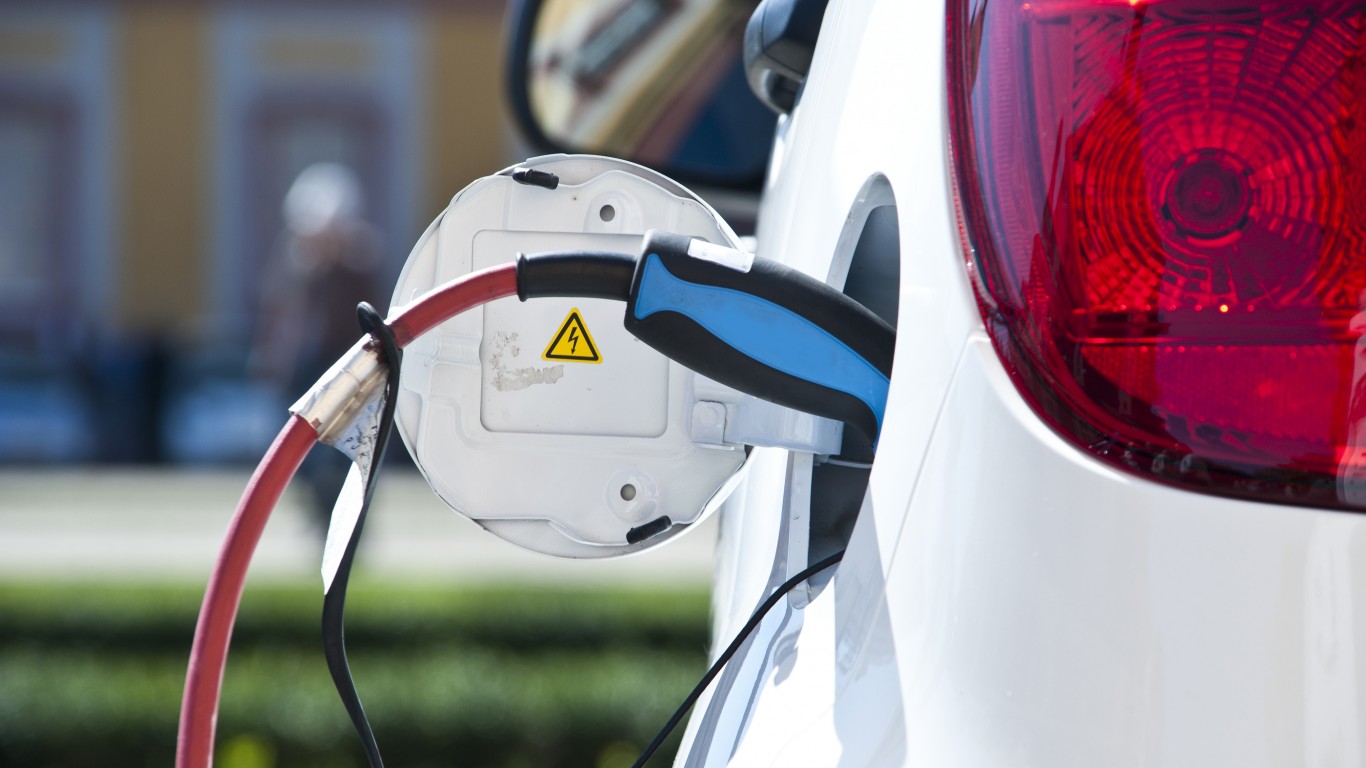
Turn-offs for buying an EV include the upfront cost and concerns about range and charging availability. But there are benefits as well. While these cars can be prohibitively expensive for many, even with federal incentives, they are cheaper in the long run. EVs have lower fuel costs and require less maintenance. They often offer advanced technology and high performance, making them fun to drive. And, of course, they produce no emissions.
According to Gallup and other research, EV owners tend to be more affluent Americans, and the buyers most interested are younger. Many are Gen Z, or zoomers, the generation now beginning to come into their prime. They will soon have an impact on what the future looks like.
Here are the top 10 EV brands in the first quarter, ranked on sales figures from Kelley Blue Book.
10. Cadillac
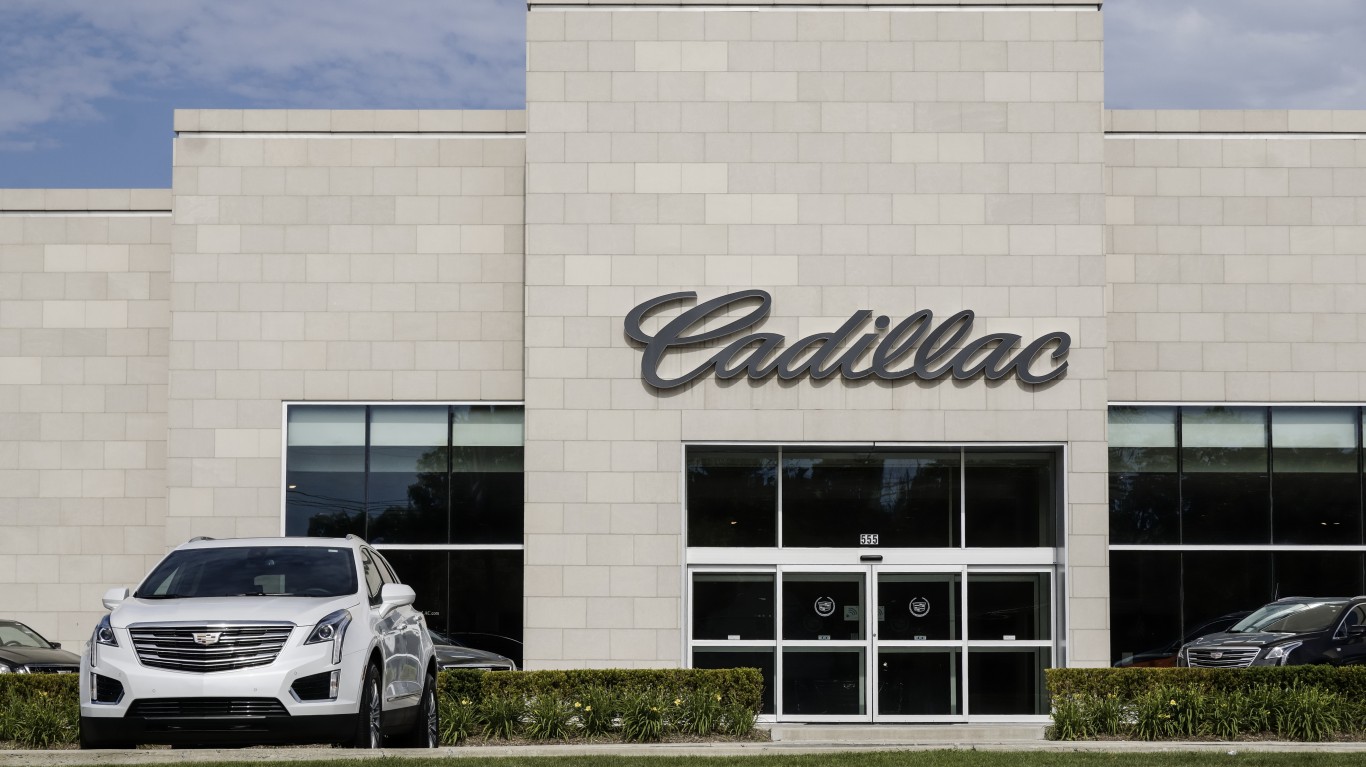
- First-quarter unit sales: 5,800
- Year-over-year change: 499.2%
- Popular models: Lyriq, Optiq, Escalade IQ
A Bespoke Ultra-Luxury EV
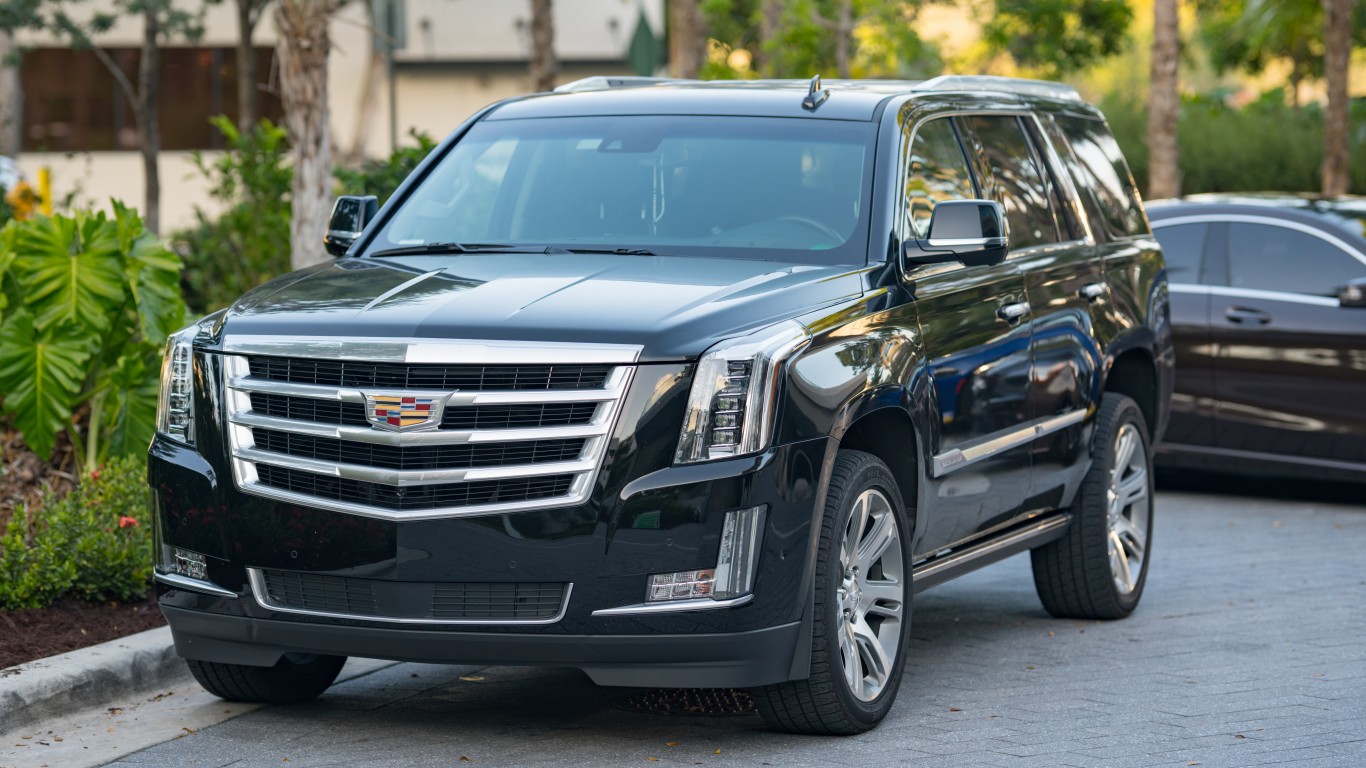
Cadillac had said it would sell only EVs by 2030 but has since backed off that pledge, citing changing consumer sentiment. In April, its luxury SUV Lyriq outsold competitors from BMW and Mercedes. The Optiq is the smaller and more affordable version. The electric version of the Escalade is expected to roll off the line this summer, and the upcoming Vistiq will be a three-row SUV that fits the slot between the Lyriq and Escalade IQ. And the Celestiq will be a bespoke ultra-luxury EV.
9. Volkswagen

- First-quarter unit sales: 6,167
- Year-over-year change: −36.8%
- Popular models: ID.4, ID.7, ID.Buzz
An Early Frontrunner
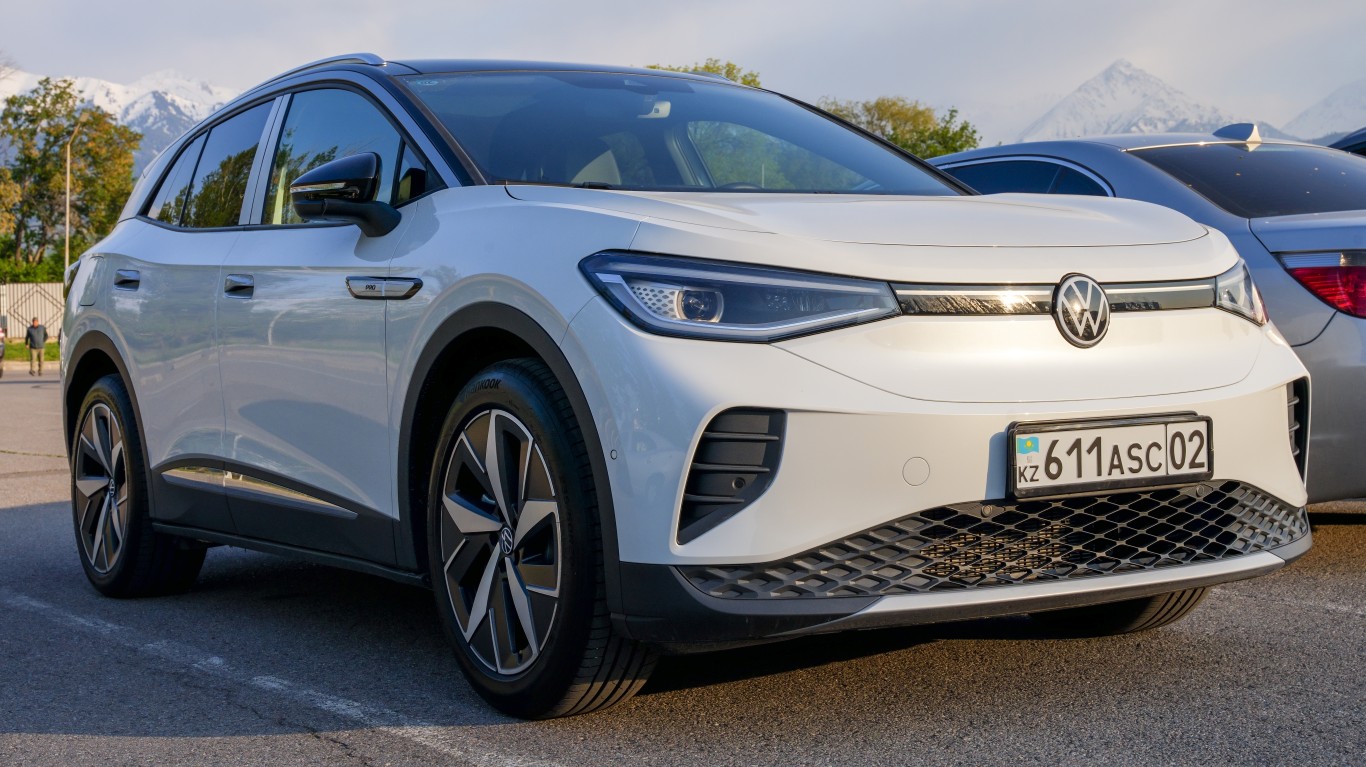
Volkswagen seemed to be one of the early frontrunners in the EV race, with development dating back to 1972. However, with a recent slump in sales and loss in market share, the German company has indefinitely delayed introduction of its ID.7 sedan in the United States. The ID.Buzz, a modern take on the iconic VW minibus, is still expected to launch in the United States sometime this year. Models in development but with no release dates include ID.Xtreme off-road vehicle and ID.Vizzion luxury car.
8. Chevrolet

- First-quarter unit sales: 8,701
- Year-over-year change: −55.8%
- Popular models: Bolt EV, Bolt EUV, Equinox EV
A Pony Car and a Pickup
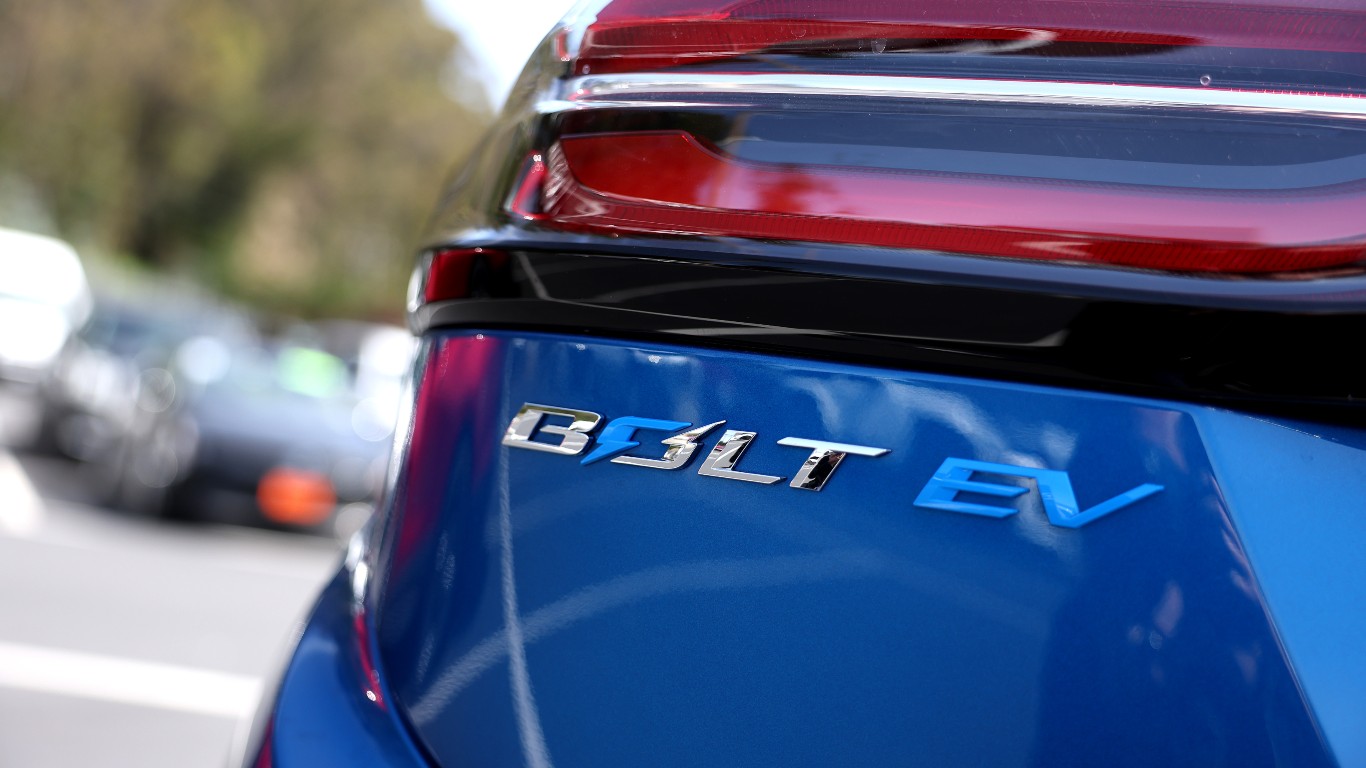
General Motors Co. (NYSE: GM) recently settled a lawsuit over recalls of Chevy Bolt EVs for battery issues. But the company has also been highlighting its plans to introduce an all-electric Camaro that lives up to its pony car heritage. GM will be retiring the Chevy Malibu and focusing on making more EVs. Production of an all-electric Silverado recently began, no doubt to compete with the Tesla Cybertruck and Ford’s F-150 Lightning.
7. Kia
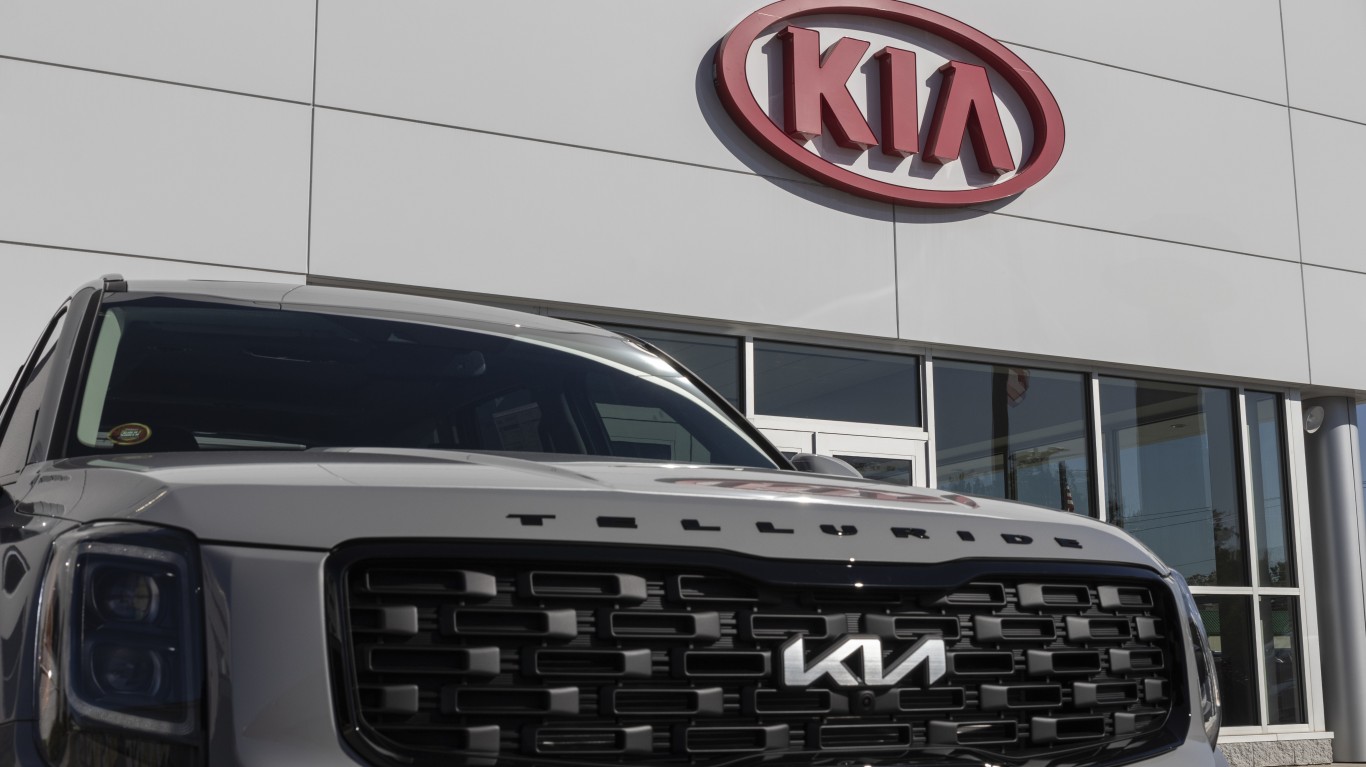
- First-quarter unit sales: 9,654
- Year-over-year change: 62.8%
- Popular models: EV6, EV9, Niro EV
World Car of the Year
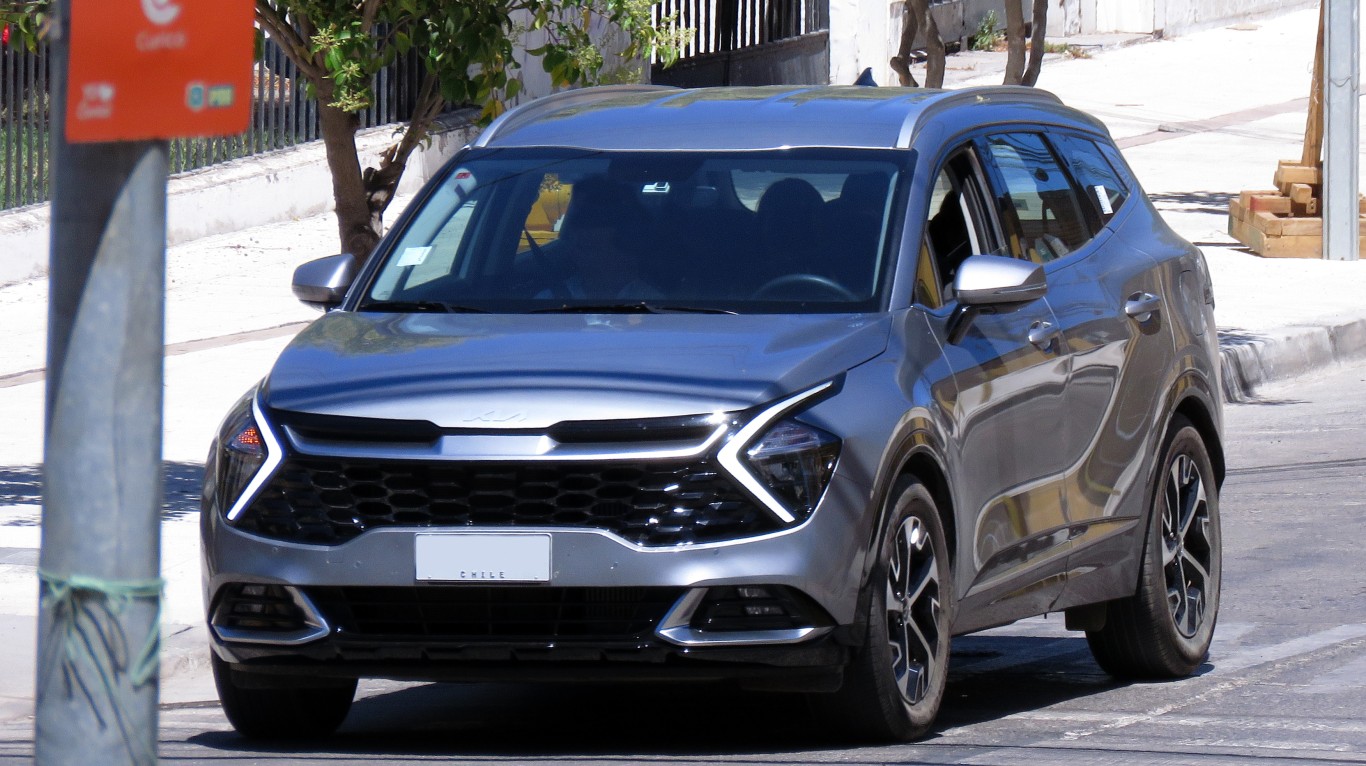
The Kia EV9, an all-electric three-row SUV, won the 2024 World Car of the Year award at the New York International Auto Show, beating out competitors from BYD and Volvo. The EV9 SUV has been lauded for its fast charging and long range, and sales soared to a record in April. The company’s first widely available EV was the Soul EV, introduced at the 2014 Chicago Auto Show. Kia aims to boost its global EV sales to 4 million by 2027 and to have 15 all-electric models in its lineup by 2030.
6. BMW
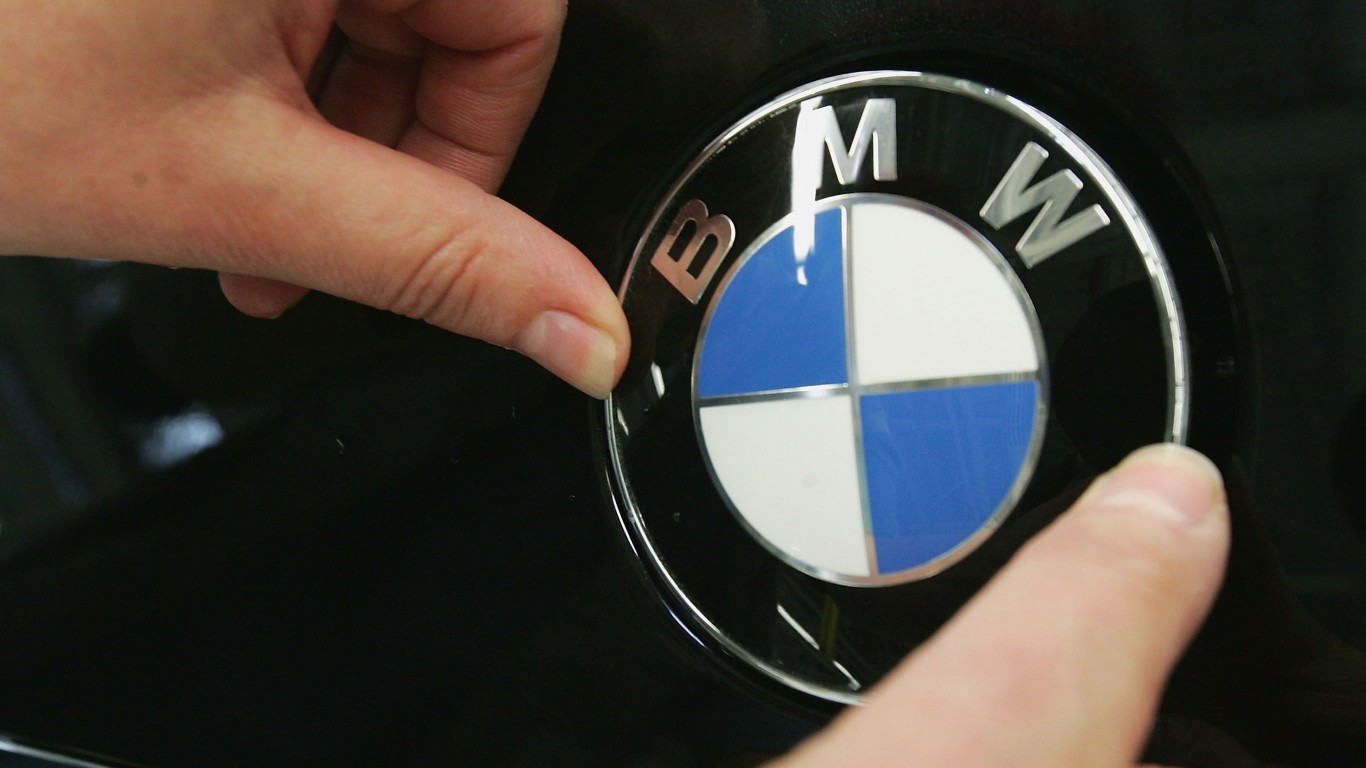
- First-quarter unit sales: 10,713
- Year-over-year change: 62.6%
- Popular models: i4, i7, iX
An EV Success Story
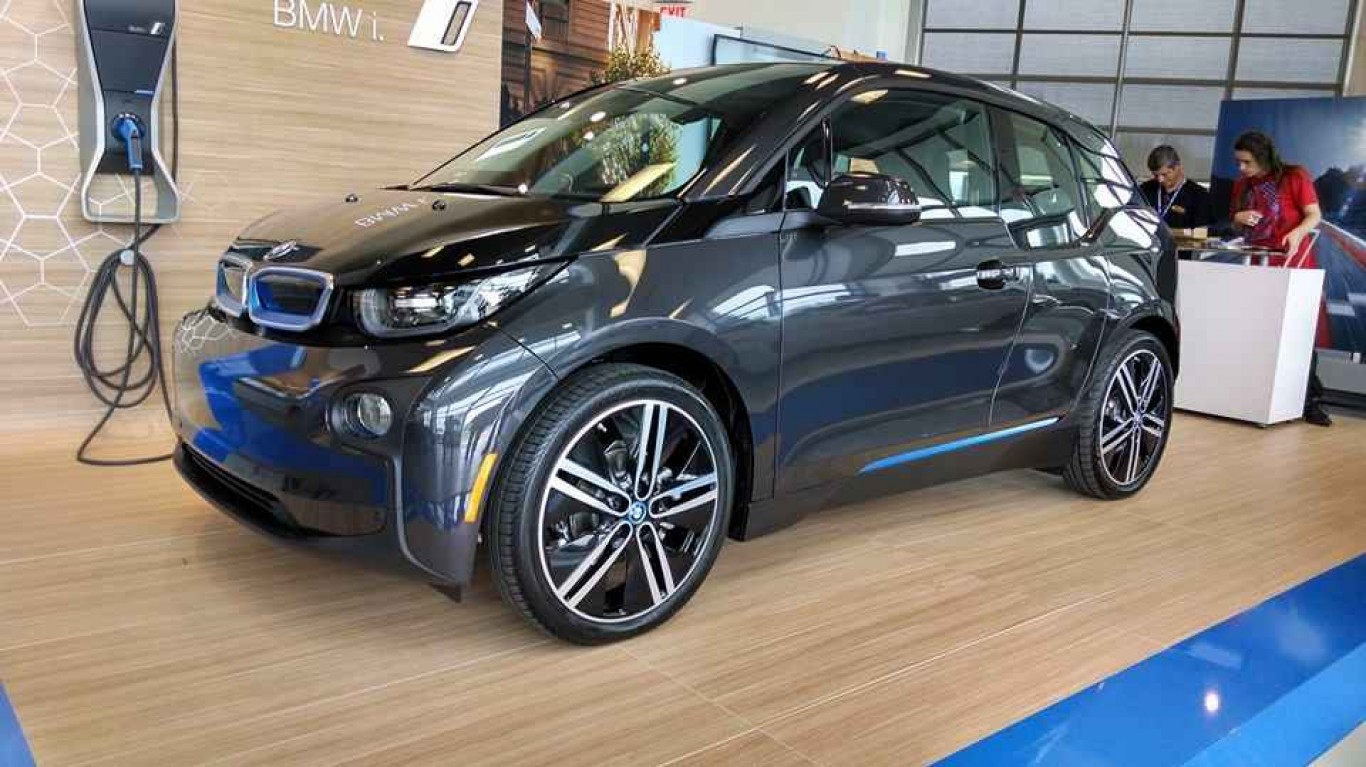
EVs accounted for 15% of BMW sales in 2023, up sharply from the year before. In the luxury segment, BMW was second only to Tesla. Unlike Ford and GM, BMW made a profit on the electric vehicles it sold. The popular i4 is the cheapest car to lease in BMW’s entire lineup. Next year, BMW will begin selling a new line of EVs, including a sedan and a crossover SUV. This new class has such improvements as batteries that store 20% more energy per pound and a digital display that runs along the entire bottom edge of the windshield, a feature not available from Tesla.
5. Mercedes

- First-quarter unit sales: 12,250
- Year-over-year change: 66.9%
- Popular models: EQS, EQE, EQB
Pumping the Brakes
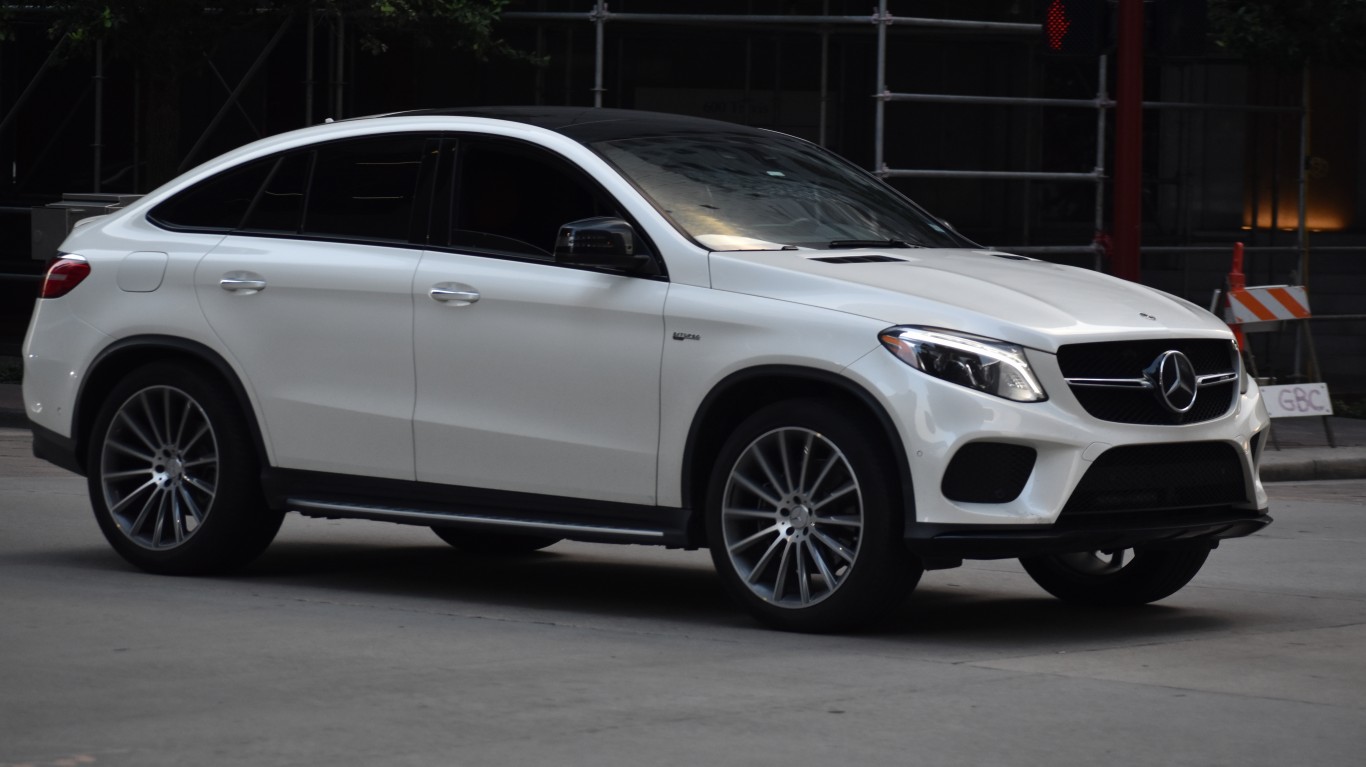
Mercedes-Benz reportedly has canceled development of a next-generation platform designed for the successors of the EQS and EQE due to the poor sales of the current EV models. The EQS sedan loses value much faster than its combustion-engine counterpart, as owners tend to trade their vehicles in sooner and the used-car market becomes saturated with them. The company recently announced it would postpone its goal of becoming an EV-only brand by 2030.
4. Hyundai

- First-quarter unit sales: 12,290
- Year-over-year change: 57.1%
- Popular models: Kona Electric, Ioniq 5, Ioniq 6
Dreaming Big
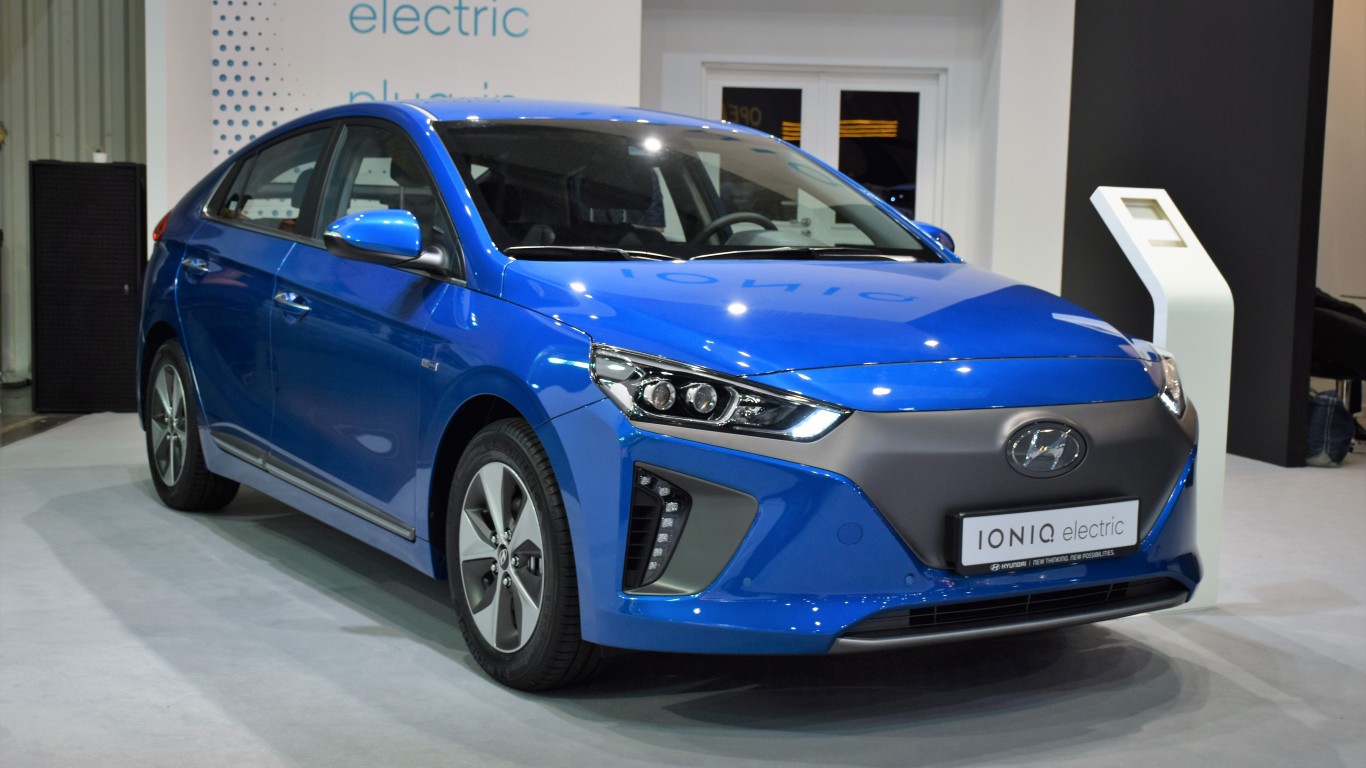
Hyundai first began developing an EV back in 1991. Including hybrids and a single fuel-cell model, the South Korean company now has 10 electric models. It aims to have 31 by 2030 and to be a top three EV maker. Hyundai set a new record for Ioniq 5 sales in the most recent quarter, and the wait time for the vehicle is said to be about 5 months. The Ioniq 9, a three-row SUV, is expected to launch by the end of the year.
3. Rivian

- First-quarter unit sales: 13,588
- Year-over-year change: 58.8%
- Popular models: R1T, R1S
Little Company, Big Plans
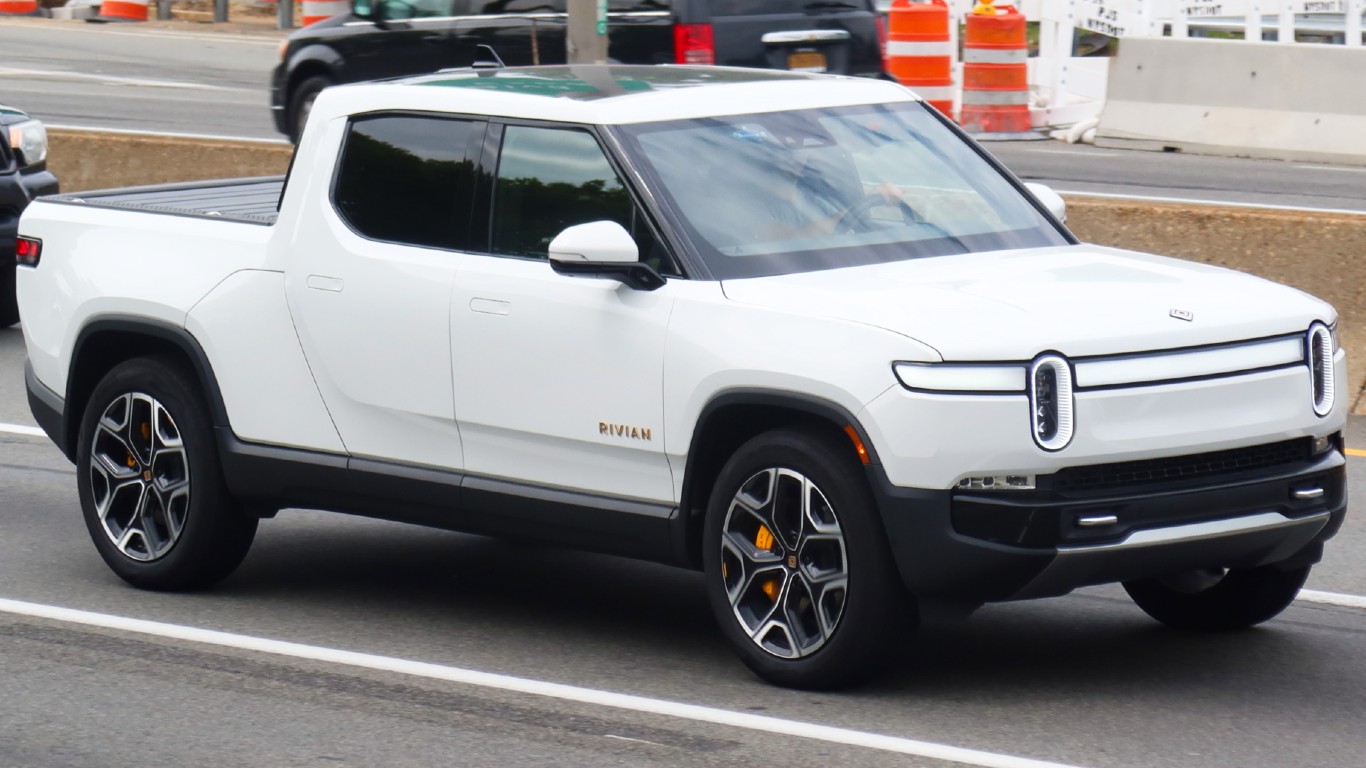
This California-based EV maker was founded in 2009. Rivian Automotive Inc. (NASDAQ: RIVN) currently produces an SUV and a pickup but has plans to produce an electric delivery van. Other planned offerings include the R2, a smaller and more affordable SUV that will be built in a plant being built in Georgia, as well as the R3, a compact SUV. Car and Driver praised the R1T for its acceleration and off-road handling. The company hopes to be profitable in the fourth quarter.
2. Ford
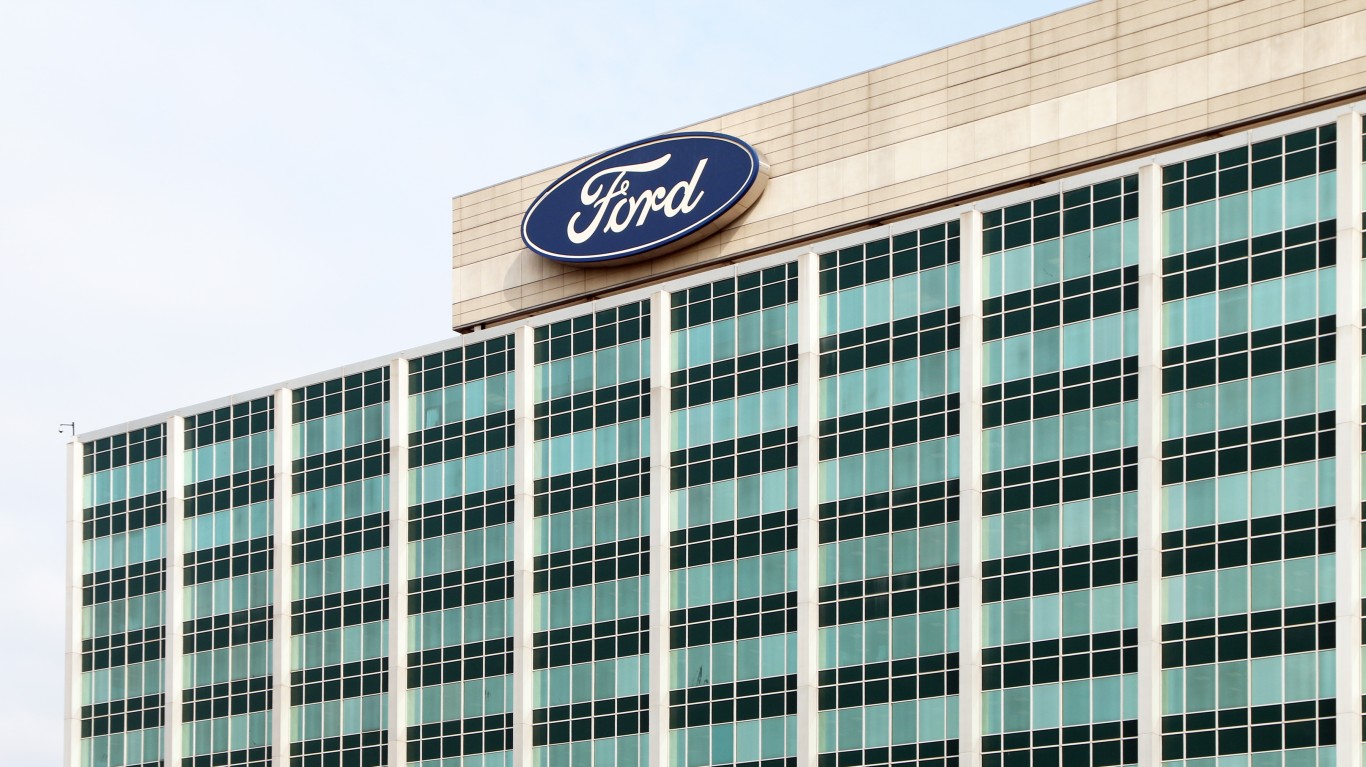
- First-quarter unit sales: 20,223
- Year-over-year change: 86.1%
- Popular models: Mustang Mach-E, F-150 Lightning, Escape Plug-In Hybrid
Shifting Gears to Hybrids
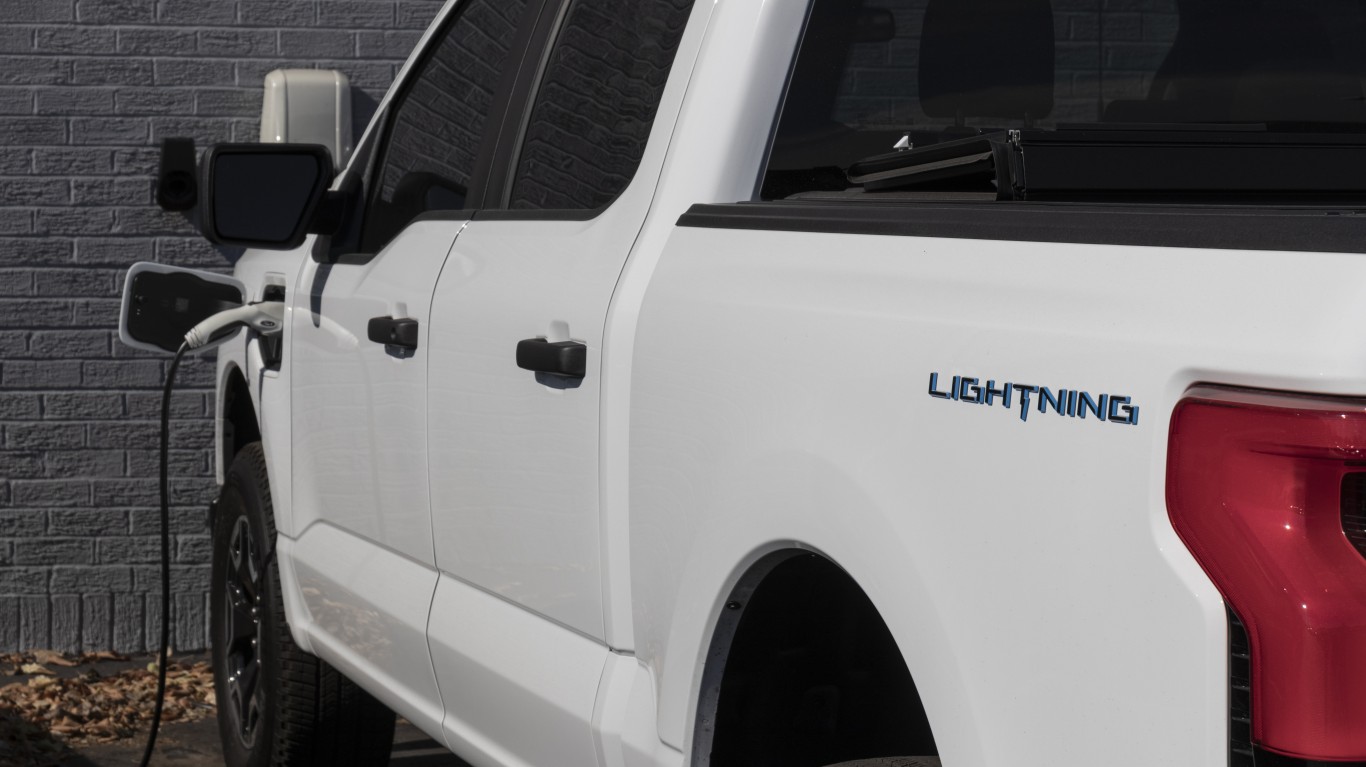
The gain in sales is good news for Ford Motor Co. (NYSE: F), which has struggled to make its EV offerings profitable, despite considerable investment technology and production. The company blamed a revenue drop on price cuts it made to keep up with those by competitors, primarily market leader Tesla. Ford also delayed production of its all-electric SUVs and pickups. It expects to continue to post losses for its EV unit this year but does forecast that hybrid sales will increase year over year.
See which are the five best EVs to drive forever.
1. Tesla
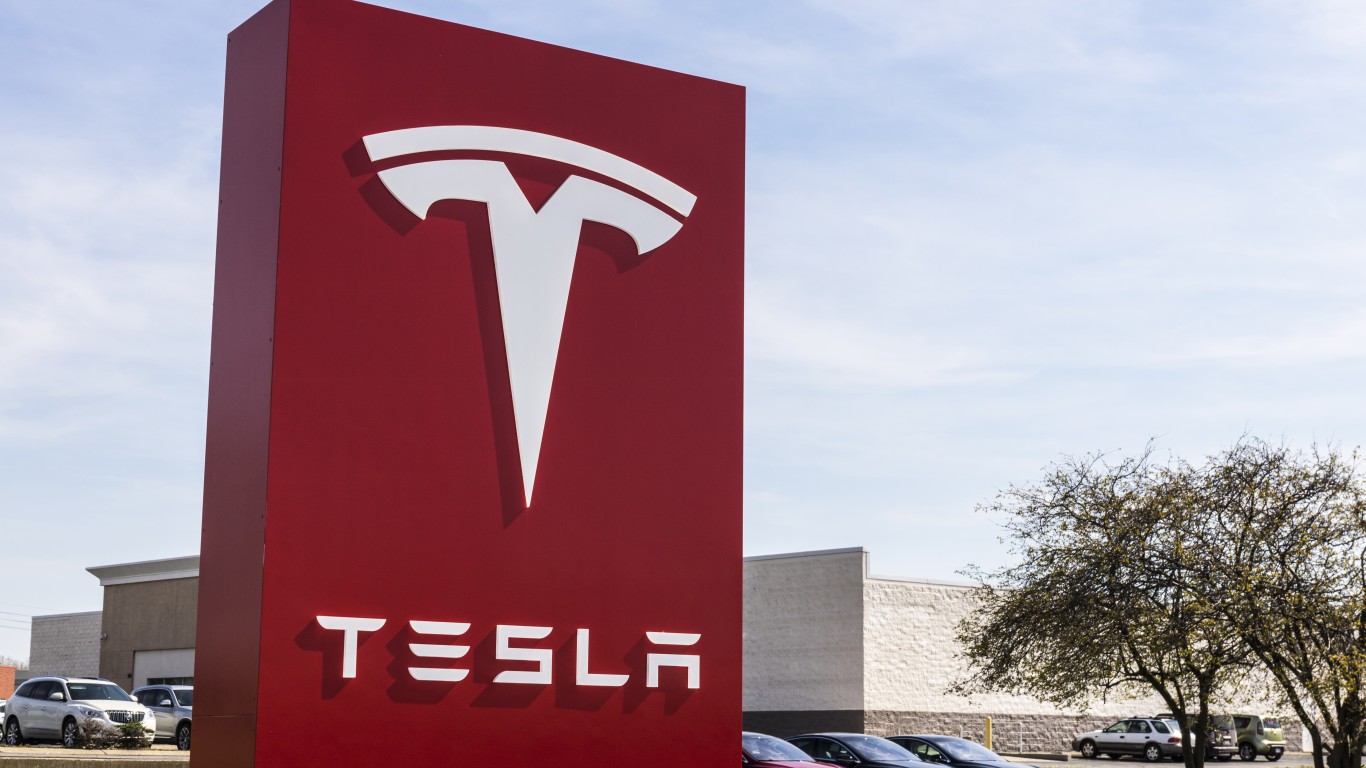
- First-quarter unit sales: 140,187
- Year-over-year change: −13.3%
- Popular models: Model Y, Model 3, Model S
Still a Global Leader
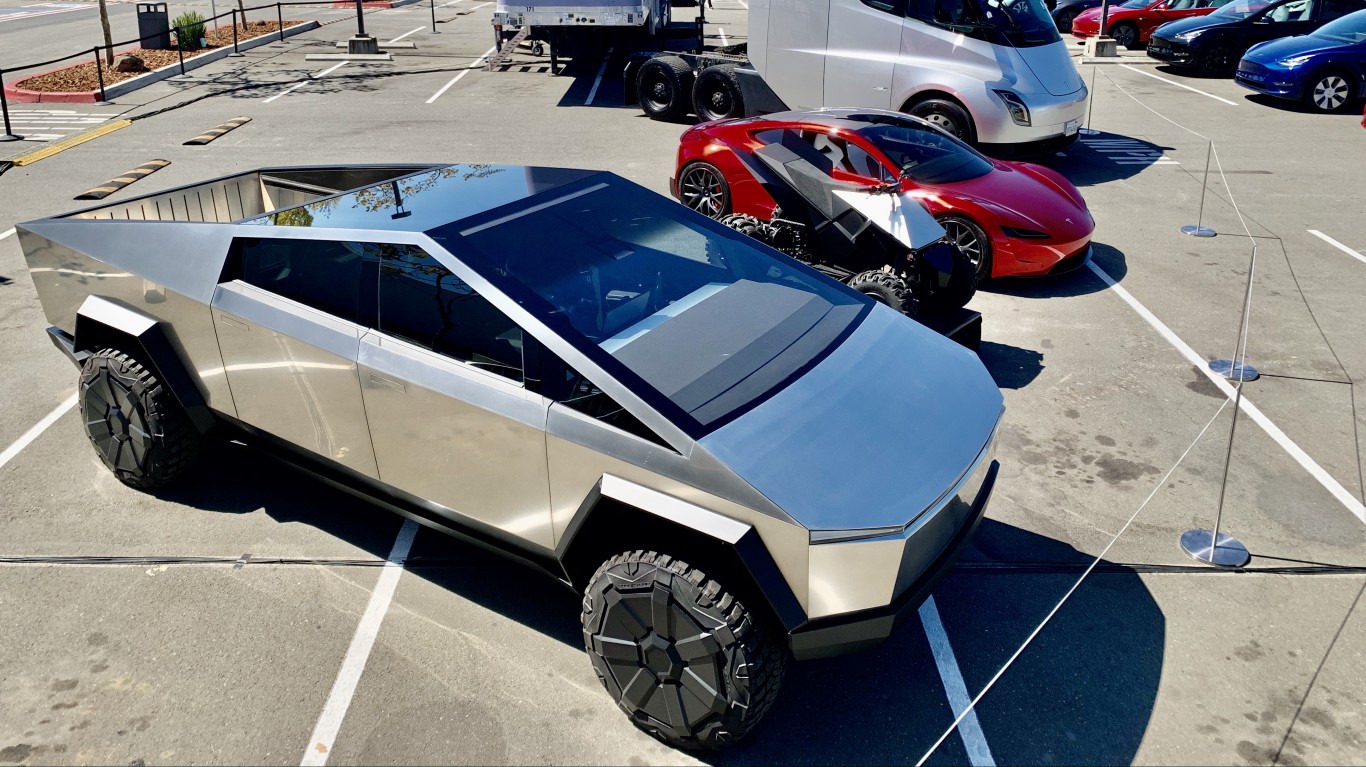
Despite the decline in sales, this battery electric vehicle maker Tesla Inc. (NASDAQ: TSLA) is still the largest EV company in the world by far. The Tesla Model Y was the bestselling car in the world last year. The battery electric vehicle maker began production of its first model, the Roadster, in 2008. Its Model 3 was the first electric car to sell 1 million units globally. The company began delivery of its Cybertruck a few months ago, and Tesla is working on making its vehicles truly autonomous and the launch of a robotaxi.
Are You Still Paying With a Debit Card?
The average American spends $17,274 on debit cards a year, and it’s a HUGE mistake. First, debit cards don’t have the same fraud protections as credit cards. Once your money is gone, it’s gone. But more importantly you can actually get something back from this spending every time you swipe.
Issuers are handing out wild bonuses right now. With some you can earn up to 5% back on every purchase. That’s like getting a 5% discount on everything you buy!
Our top pick is kind of hard to imagine. Not only does it pay up to 5% back, it also includes a $200 cash back reward in the first six months, a 0% intro APR, and…. $0 annual fee. It’s quite literally free money for any one that uses a card regularly. Click here to learn more!
Flywheel Publishing has partnered with CardRatings to provide coverage of credit card products. Flywheel Publishing and CardRatings may receive a commission from card issuers.
Thank you for reading! Have some feedback for us?
Contact the 24/7 Wall St. editorial team.




